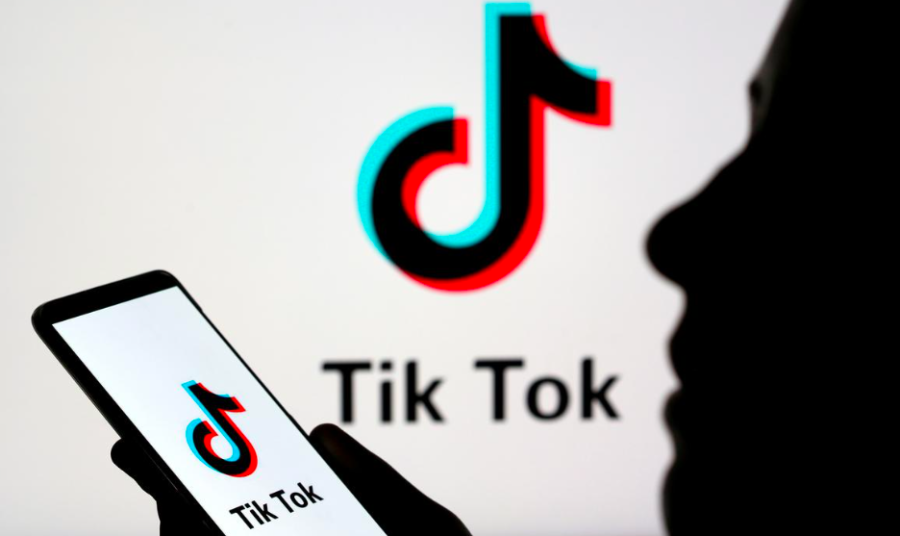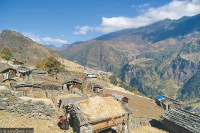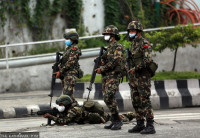National
TikTok ban triggers a wave of petitions at Supreme Court
The petitioners claim ban is no solution. Say social media platforms can be regulated, but only on the basis of laws.
Binod Ghimire
The Supreme Court on Friday received numerous writ petitions demanding its intervention in the government decision to ban TikTok, a social media platform widely used by Nepalis of all ages.
The government on Monday imposed a ban on the platform, claiming it spread negativity in society and consequently disturbed social harmony. Mixed reactions followed the ban, aimed mostly against the government action. Four days later, as the court resumed on Friday after Tihar holidays, 10 writ petitions were registered demanding the government’s ‘unconstitutional decision’ be scrapped.
“Ten different writ petitions that challenge the government’s TikTok ban were registered on Friday,” Bhadrakali Pokharel, the court spokesperson, told the Post. “A single bench will conduct a preliminary hearing of all the petitions on Monday.”
Though 10 legal professionals have lodged separate petitions, they essentially make the same claim that the ban is against the constitutionally guaranteed freedom of expression and the right to communication and information.
Banning TikTok is against the freedom of opinion and expression which are the heart and soul of the constitution, the petitioners say. “The decision is prima facie against the letter and spirit of the constitution. It is a gross violation of the statute,” senior advocate Dinesh Tripathi, one of the petitioners, told the Post. “I have asked the court to issue an order to revoke the decision.”
The petitioners claim that banning the social media platform is no solution. If needed, such platforms can be regulated, on the basis of laws promulgated by the legislature, they say.
Talking to the Post, advocate Sunil Ranjan Singh, another petitioner, said the government banned TikTok in an attempt to silence critical voices.
“There is no legal ground for the ban. By making the arbitrary decision, the government seems to be treading an autocratic path,” he told the Post. “If not checked on time, it will continue to ban other platforms used to criticise the government.”
Singh argued that over the years, people have used social media not just for entertainment and to express their feelings and opinions but also to access information and knowledge. Ban on TikTok is a ban on the medium to get informed and publicise personal opinions, he said.
He also claimed that it was wrong to resort to extreme measures like the platform’s ban while TikTok claims to be legally registered in Nepal and working in close coordination with Nepali authorities.
TikTok, in an email to the Nepali authorities, has raised its concerns in seven points while also bringing into notice that it was in regular touch with the Nepal government.
“This ban will not just hamper our investment plans, it will also have a severe economic impact on our Nepali content creators, especially young adults. Nepali businesses, who have relied heavily on TikTok, use our platform to market their products and keep their businesses afloat. As a result of this ban, these businesses will be significantly affected as well,” reads the email by Ferdous Mottakin, TikTok head of public policy and government relations for South Asia.
It also stated that TikTok was registered in Nepal as a digital service taxpayer on August 29, 2023. On November 3, a team from TikTok visited Kathmandu and discussed with government officials at the Ministry of Home Affairs on regulating TikTok content that the Nepal government deems “anti-social and offensive” as per the government officials
Stating that user safety is TikTok's top priority, Mottakin said they were committed to promoting a safe and welcoming environment for our community.
“As a global platform, we have thousands of people across the globe where TikTok operates working to maintain a safe environment for our users. We address content and behaviour that violate our Community Guidelines through a combination of policies, technology, and moderation, which may include removing contents and accounts.”
As people express mixed reactions to the government decision, many have said strict regulation of the popular platform is the right way to move ahead. The government, however, imposed a total ban on TikTok just days after it introduced the ‘Directives on the Operation of Social Networking 2023’.
A Cabinet meeting on November 10 had made it mandatory for social media sites such as Facebook, X (formerly Twitter), TikTok and YouTube, among others, to open their liaison offices in Nepal.
In the directives, the government also included a 19-point not-to-do list for the users of platforms like Facebook, X, TikTok, YouTube and Instagram.




 13.83°C Kathmandu
13.83°C Kathmandu















